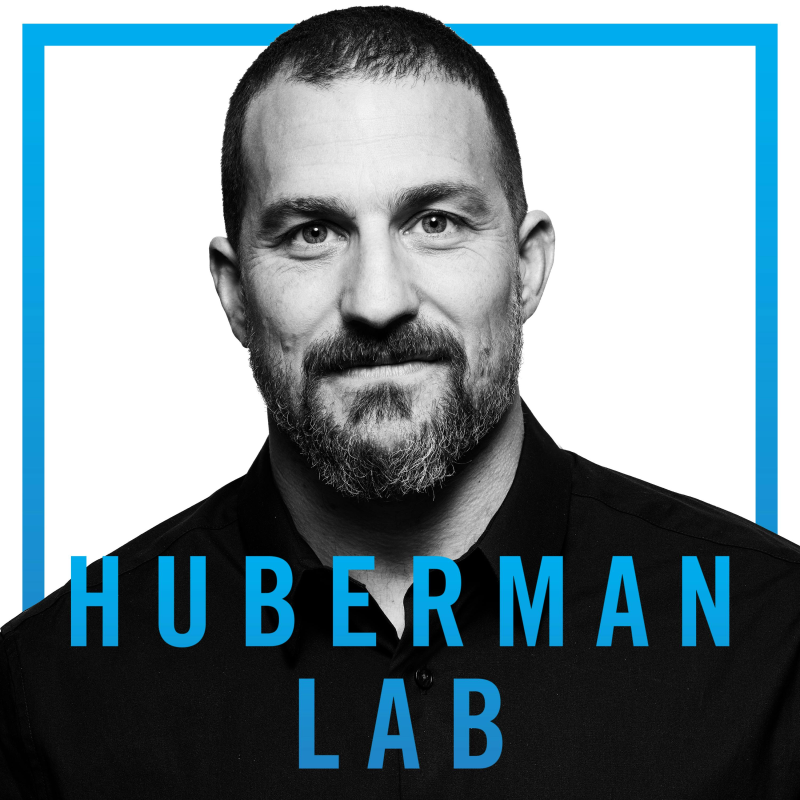
Understand & Apply the Psychology of Money to Gain Greater Happiness | Morgan Housel

O epizodě podcastu
In this episode, my guest is Morgan Housel, an expert in private wealth generation and management and author of the bestselling book The Psychology of Money. We discuss how desiring, pursuing, saving, and spending money impact our psychology and perception of wealth. We explore why people tend to either overspend or oversave and examine the most common mistakes made in the pursuit of financial freedom. Additionally, we discuss how to best use money — and one’s relationship with it — as a tool to create psychological security, freedom, and a deeper sense of life purpose.
We also delve into the impact of purchases, social media, and wealth signaling on our internal reward circuits, the dangers of using money as a gauge of career progress or self-worth, and the healthiest psychological stances to adopt while building wealth at any level. By the end of the episode, listeners will have gained numerous practical tools for making smarter financial decisions and should have a clearer understanding of the role money plays in their psychology, happiness, and life.
Access the full show notes for this episode at hubermanlab.com.
Pre-order Andrew's new book, Protocols: protocolsbook.com
Thank you to our sponsors
AG1: https://drinkag1.com/huberman
Wealthfront**: https://wealthfront.com/huberman
BetterHelp: https://betterhelp.com/huberman
ROKA: https://roka.com/huberman
Function: https://functionhealth.com/huberman
**This experience may not be representative of the experience of other clients of Wealthfront, and there is no guarantee that all clients will have similar experiences. Cash Account is offered by Wealthfront Brokerage LLC, Member Finra/SIPC. Promo terms and FDIC coverage conditions apply. Same-day withdrawal or instant payment transfers may be limited by destination institutions, daily transaction caps, and by participating entities such as Wells Fargo, the RTP® Network, and FedNow® Service. New Cash Account deposits are subject to a 2-4 day holding period before becoming available for transfer.
Timestamps
00:00:00 Morgan Housel
00:02:13 Sponsors: Wealthfront & BetterHelp
00:05:11 Spending Habits & Cynicism
00:08:44 Tool: Money & Future Regrets
00:16:07 Money Management Extremes; Credit & Hope
00:23:17 Money as a Tool, Happiness, Independence & Purpose
00:27:30 Sponsors: AG1 & ROKA
00:30:11 Unstructured Time; Independence, Identify & Money; Addiction
00:39:04 Longevity, Health & Money
00:47:42 Ambition, Social Media, Fame & Social Debt
00:53:37 Sponsor: Function
00:55:24 Resume Virtues vs. Eulogy Virtues
00:57:52 Compound Interest, Math vs. Behavior
01:01:42 Dopamine & Time, Marshmallow Test & Distraction
01:09:58 Motivation, Pleasure; Relationships
01:14:38 Freedom, Tool: Savings & Independence
01:19:06 Peak-End Rule, Autonomy & Independence; Elder vs. Elderly
01:24:07 Familial Wealth & Identity; Entrepreneurs
01:31:53 Life Purpose; Dogs; Social & Historical Comparison
01:39:58 Social Comparison & Geography, Angst
01:46:07 Carrot vs. Stick, Identity, Tool: Verb States & Energy
01:56:43 Envy & Spending Money; Wealth & Birth Rates
02:01:27 Tools: Parent Modeling; Resentment, Individual Goals
02:07:15 Purpose, Happiness & Money
02:13:05 Zero-Cost Support, YouTube, Spotify & Apple Follow & Reviews, Sponsors, YouTube Feedback, Protocols Book, Social Media, Neural Network Newsletter
Disclaimer & Disclosures
In this episode, my guest is Morgan Housel, an expert in private wealth generation and management and author of the bestselling book The Psychology of Money. We discuss how desiring, pursuing, saving, and spending money impact our psychology and perception of wealth. We explore why people tend to either overspend or oversave and examine the most common mistakes made in the pursuit of financial freedom. Additionally, we discuss how to best use money — and one’s relationship with it — as a tool to create psychological security, freedom, and a deeper sense of life purpose.
We also delve into the impact of purchases, social media, and wealth signaling on our internal reward circuits, the dangers of using money as a gauge of career progress or self-worth, and the healthiest psychological stances to adopt while building wealth at any level. By the end of the episode, listeners will have gained numerous practical tools for making smarter financial decisions and should have a clearer understanding of the role money plays in their psychology, happiness, and life.
Access the full show notes for this episode at hubermanlab.com.
Pre-order Andrew's new book, Protocols: protocolsbook.com
Thank you to our sponsors
AG1: https://drinkag1.com/huberman
Wealthfront**: https://wealthfront.com/huberman
BetterHelp: https://betterhelp.com/huberman
ROKA: https://roka.com/huberman
Function: https://functionhealth.com/huberman
**This experience may not be representative of the experience of other clients of Wealthfront, and there is no guarantee that all clients will have similar experiences. Cash Account is offered by Wealthfront Brokerage LLC, Member Finra/SIPC. Promo terms and FDIC coverage conditions apply. Same-day withdrawal or instant payment transfers may be limited by destination institutions, daily transaction caps, and by participating entities such as Wells Fargo, the RTP® Network, and FedNow® Service. New Cash Account deposits are subject to a 2-4 day holding period before becoming available for transfer.
Timestamps
00:00:00 Morgan Housel
00:02:13 Sponsors: Wealthfront & BetterHelp
00:05:11 Spending Habits & Cynicism
00:08:44 Tool: Money & Future Regrets
00:16:07 Money Management Extremes; Credit & Hope
00:23:17 Money as a Tool, Happiness, Independence & Purpose
00:27:30 Sponsors: AG1 & ROKA
00:30:11 Unstructured Time; Independence, Identify & Money; Addiction
00:39:04 Longevity, Health & Money
00:47:42 Ambition, Social Media, Fame & Social Debt
00:53:37 Sponsor: Function
00:55:24 Resume Virtues vs. Eulogy Virtues
00:57:52 Compound Interest, Math vs. Behavior
01:01:42 Dopamine & Time, Marshmallow Test & Distraction
01:09:58 Motivation, Pleasure; Relationships
01:14:38 Freedom, Tool: Savings & Independence
01:19:06 Peak-End Rule, Autonomy & Independence; Elder vs. Elderly
01:24:07 Familial Wealth & Identity; Entrepreneurs
01:31:53 Life Purpose; Dogs; Social & Historical Comparison
01:39:58 Social Comparison & Geography, Angst
01:46:07 Carrot vs. Stick, Identity, Tool: Verb States & Energy
01:56:43 Envy & Spending Money; Wealth & Birth Rates
02:01:27 Tools: Parent Modeling; Resentment, Individual Goals
02:07:15 Purpose, Happiness & Money
02:13:05 Zero-Cost Support, YouTube, Spotify & Apple Follow & Reviews, Sponsors, YouTube Feedback, Protocols Book, Social Media, Neural Network Newsletter
Disclaimer & Disclosures
Learn more about your ad choices. Visit megaphone.fm/adchoices
Popis podcastu
The Huberman Lab podcast is hosted by Andrew Huberman, Ph.D., a neuroscientist and tenured professor in the department of neurobiology, and by courtesy, psychiatry and behavioral sciences at Stanford School of Medicine. The podcast discusses neuroscience and science-based tools, including how our brain and its connections with the organs of our body control our perceptions, our behaviors, and our health, as well as existing and emerging tools for measuring and changing how our nervous system works.
Huberman has made numerous significant contributions to the fields of brain development, brain function, and neural plasticity, which is the ability of our nervous system to rewire and learn new behaviors, skills, and cognitive functioning. He is a McKnight Foundation and Pew Foundation Fellow and was awarded the Cogan Award, given to the scientist making the most significant discoveries in the study of vision, in 2017.
Work from the Huberman Laboratory at Stanford School of Medicine has been published in top journals, including Nature, Science, and Cell, and has been featured in TIME, BBC, Scientific American, Discover, and other top media outlets.
In 2021, Dr. Huberman launched the Huberman Lab podcast. The podcast is frequently ranked in the top 10 of all podcasts globally and is often ranked #1 in the categories of Science, Education, and Health & Fitness.